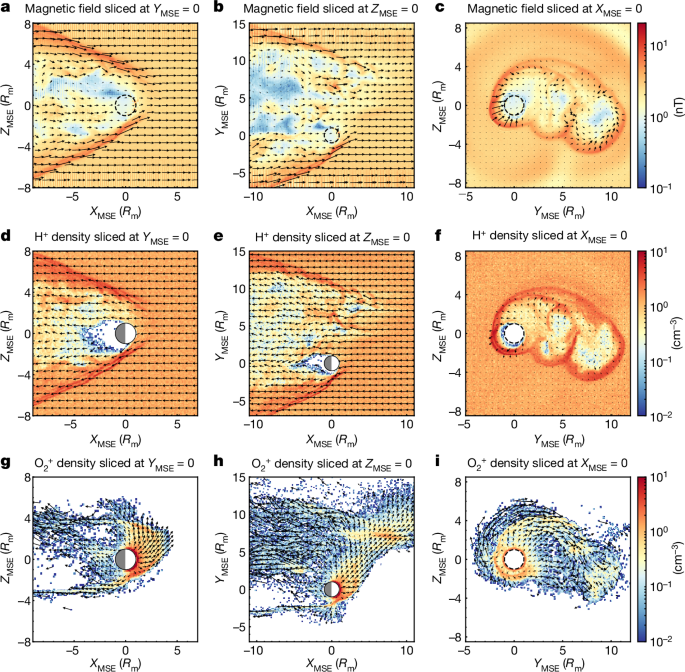Mars’s induced magnetosphere can degenerate | Nature
https://www.nature.com/articles/s41586-024-07959-z
The interaction between planets and stellar winds can lead to atmospheric loss and is, thus, important for the evolution of planetary atmospheres1. The planets in our Solar System typically interact with the solar wind, whose velocity is at a large angle to the embedded stellar magnetic field. For planets without an intrinsic magnetic field, this interaction creates an induced magnetosphere and a bow shock in front of the planet2. However, when the angle between the solar wind velocity and the solar wind magnetic field (cone angle) is small, the interaction is very different3. Here we show that when the cone angle is small at Mars, the induced magnetosphere degenerates. There is no shock on the dayside, only weak flank shocks. A cross-flow plume appears and the ambipolar field drives planetary ions upstream. Hybrid simulations with a 4° cone angle show agreement with observations by the Mars Atmosphere and Volatile Evolution mission4 and Mars Express5. Degenerate, induced magnetospheres are complex and not yet explored objects. It remains to be studied what the secondary effects are on processes like atmospheric loss through ion escape. When the cone angle between the solar wind velocity and the solar wind magnetic field is small at Mars, the induced magnetosphere degenerates.
